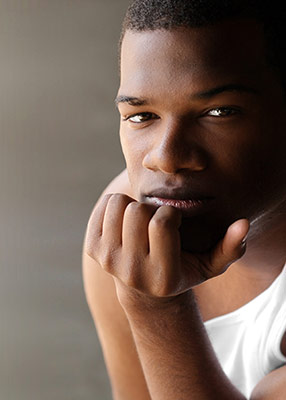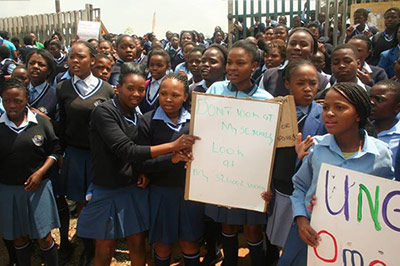BULLYING OF LGBTI YOUTH IN SCHOOLS MUST BE ADDRESSED
 The plight of LGBTI youth and their bullying and harassment at schools must also be addressed during Women’s Month, say a number of LGBTI groups, operating under the banner of the Sexual Orientation and Gender Identity Network.
The plight of LGBTI youth and their bullying and harassment at schools must also be addressed during Women’s Month, say a number of LGBTI groups, operating under the banner of the Sexual Orientation and Gender Identity Network.
In a joint statement, the network said that “the debate during this time is often limited to the realities faced by adult heterosexual women, rarely addressing issues around youth, and particularly queer youth to whom educational institutions have become a hostile environment.”
“Reports of bullying and abuse of lesbian, gay, bisexual, transgender and intersex (LGBTI) students in schools, targeted because of their non-conforming sexual or gender identity, are on the increase,” claims the network.
It cited three recent examples:
- On June 10, Transgender and Intersex Africa (TIA), an organisation based in Pretoria, published a statement about a transgender learner experiencing bullying because of his gender identity at Pretoria Central High School. The bullying took the form of sexual assaults and threats to undress the pupil in school.The learner reportedly attempted suicide as a result of the bullying he experienced at school.
- In Cape Town, a group of lesbian learners were verbally and physically assaulted by school teachers when they expressed discomfort with wearing the school tunics assigned to girls. When one of the learners told the teacher about their discomfort, the teacher responded by saying “pull down your pants so I can see what’s behind there”. One of the students was hit on the back of the head by a teacher and told “now go and call your lawyers. Let them put up a shack for you and teach you here.”
- In Limpopo, when a student refused to conform to gender-segregated uniforms, the principle encouraged the other learners to follow her to the toilets and to physically ‘check’ her genital area.
The network said that there has been little movement in addressing issues connected with gender and sexual orientation-based bullying in schools, despite the South African Schools Act, in line with the Constitution, calling for the eradication of discrimination and intolerance.
Bullying and abuse of LGBTI and other gender non-conforming students can take various forms, ranging from inappropriate questions to physical undressing of pupils and even physical violence. “Most alarming,” said the Network are “cases of teacher participation and encouragement of various forms of homophobic and transphobic bullying in schools.”
It argued that from uniforms and sports to curricula, education in South Africa is a gender segregated experience that plays a divisive role in the school lives of gender non-conforming students.
“These students are effectively excluded from participating in various activities because they do not subscribe to expected conventions about gender identity and sexual orientation.

In February, Tembisa high school pupils backed seven lesbian classmates who stopped attending school after they were branded as Satanic by their teachers.
“This has the effect of excluding these students and making them targets of bullying manifesting in various forms from brutal physical attacks to teasing and exclusionary conduct from other students,” stated the network.
It explained that abuse, exclusion and harassment lead students to feel unsafe and unwilling to attend school, thereby depriving them of the right to education. In turn, this situation sets up LGBTI and other gender non-conforming students to face exclusion from tertiary education, resulting in unemployment or limited work opportunities.
The network noted that suicide is a serious problem amongst LGBTI youth with 31% stating that they have had thoughts of committing suicide and 21% saying they have attempted to commit suicide.
A 2006 study also showed that 20% of gay/bisexual teenage males and 19% of lesbian/bisexual teenage females had been raped or sexually assaulted.
“The Department of Basic Education needs to acknowledge gender segregation and LGBTI-related bullying as a problem that needs its immediate and urgent attention through policy and any other form of legal redress, as well as effective and consistent implementation of policies,” urged the network.
Young people who have experienced or are experiencing discrimination and abuse at school as a result of their sexual orientation or gender identity have been urged to contact Gabriel Hoosain Khan from GALA (Johannesburg) at 011 717 1782 or Busisiwe Deyi from Gender DynamiX (Cape Town) at info@genderdynamix.org.za or 021 633 5287.
The statement was issued on behalf of the following organisations: Triangle Project (Cape Town); Gay and Lesbian Centre (Durban); Forum for Empowerment of Women (Johannesburg); Gay and Lesbian Network (Pietermaritzburg); and the University of Witwatersrand – Transformation Office (Johannesburg).
- Facebook Messenger
- Total112
it is not good what they doing